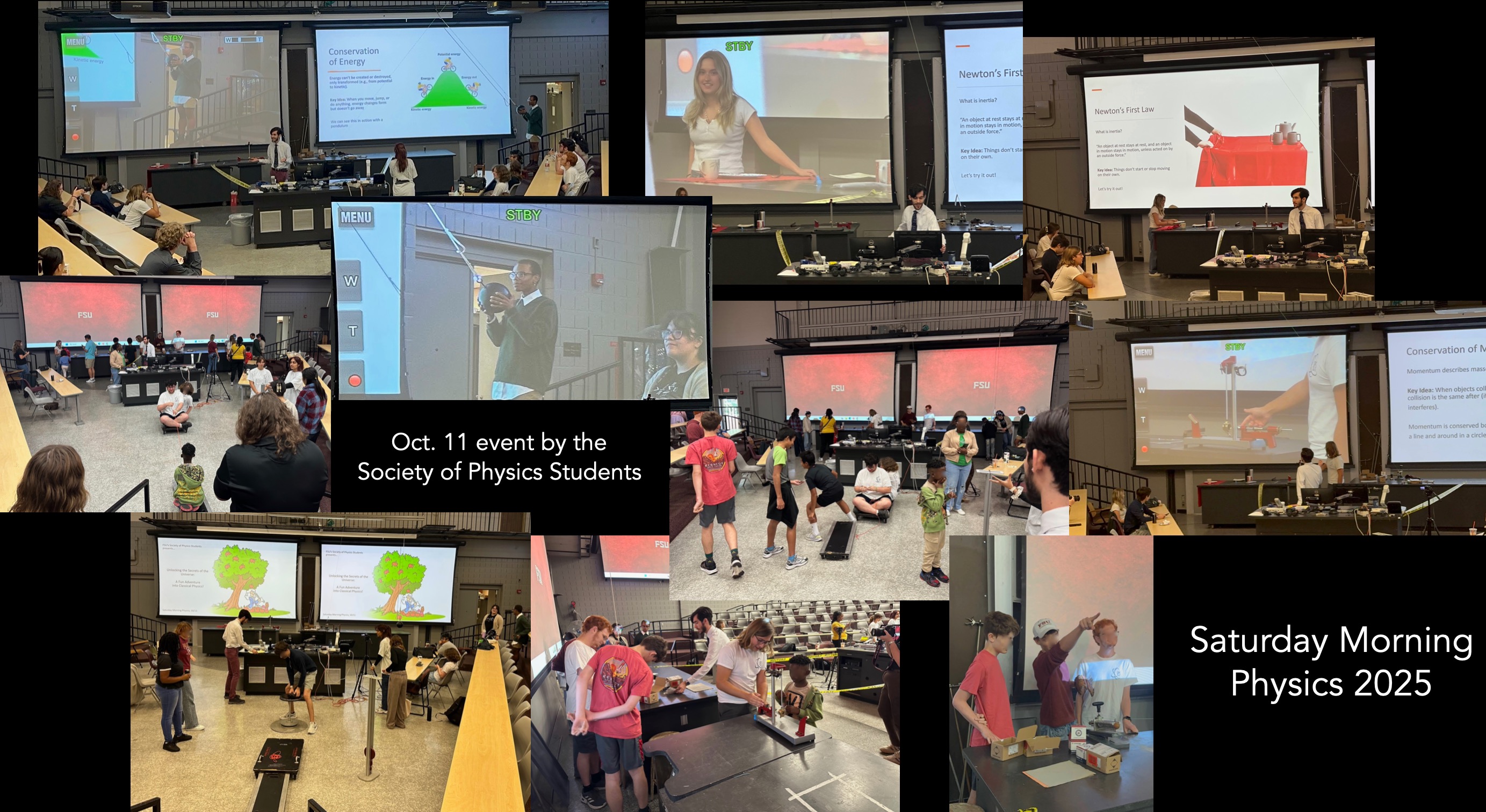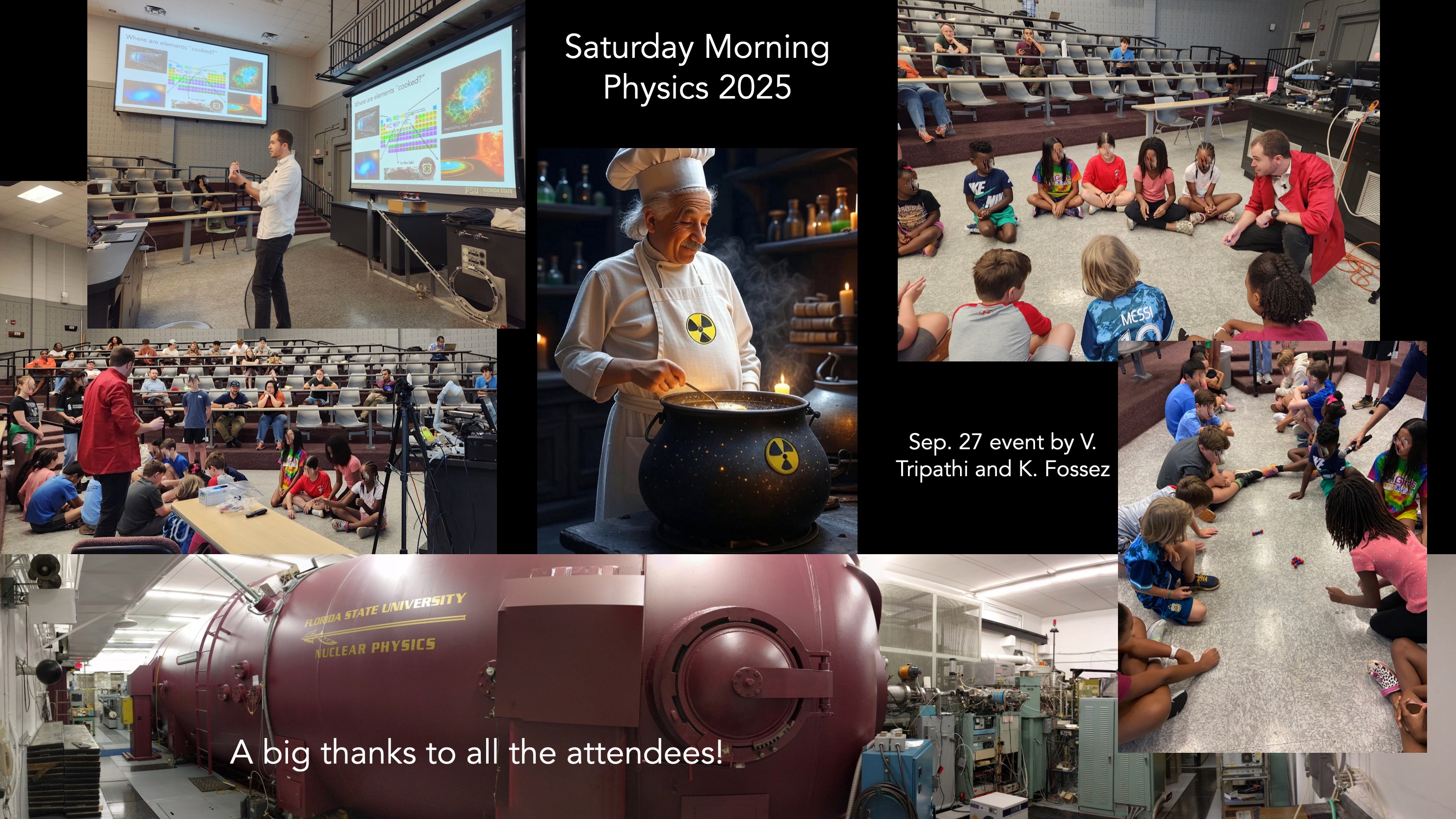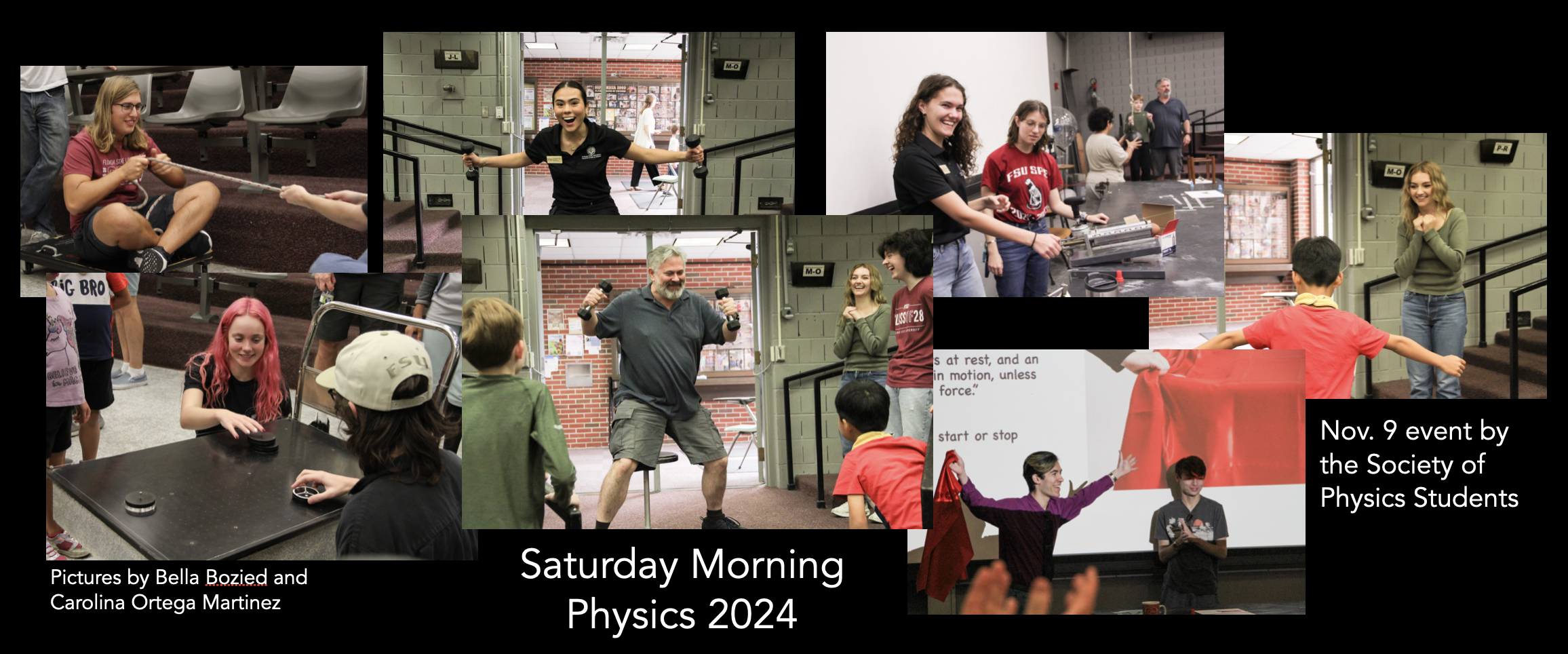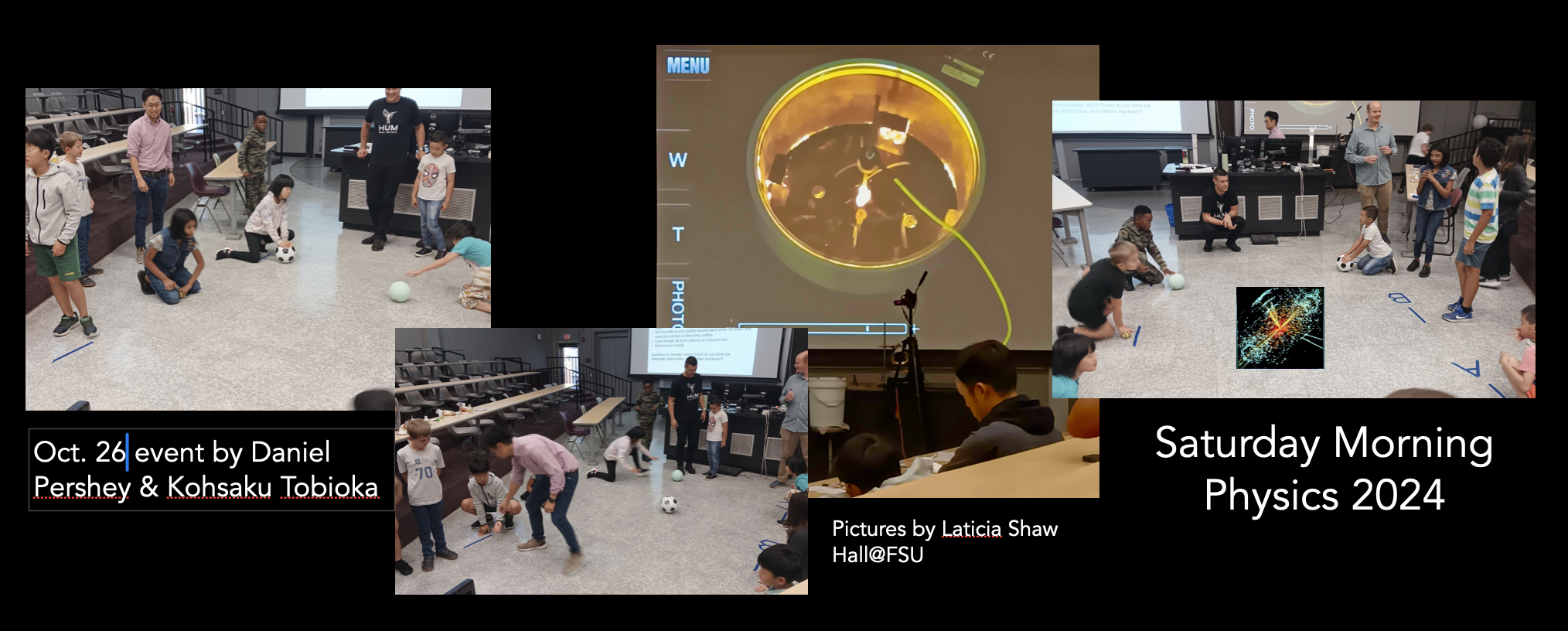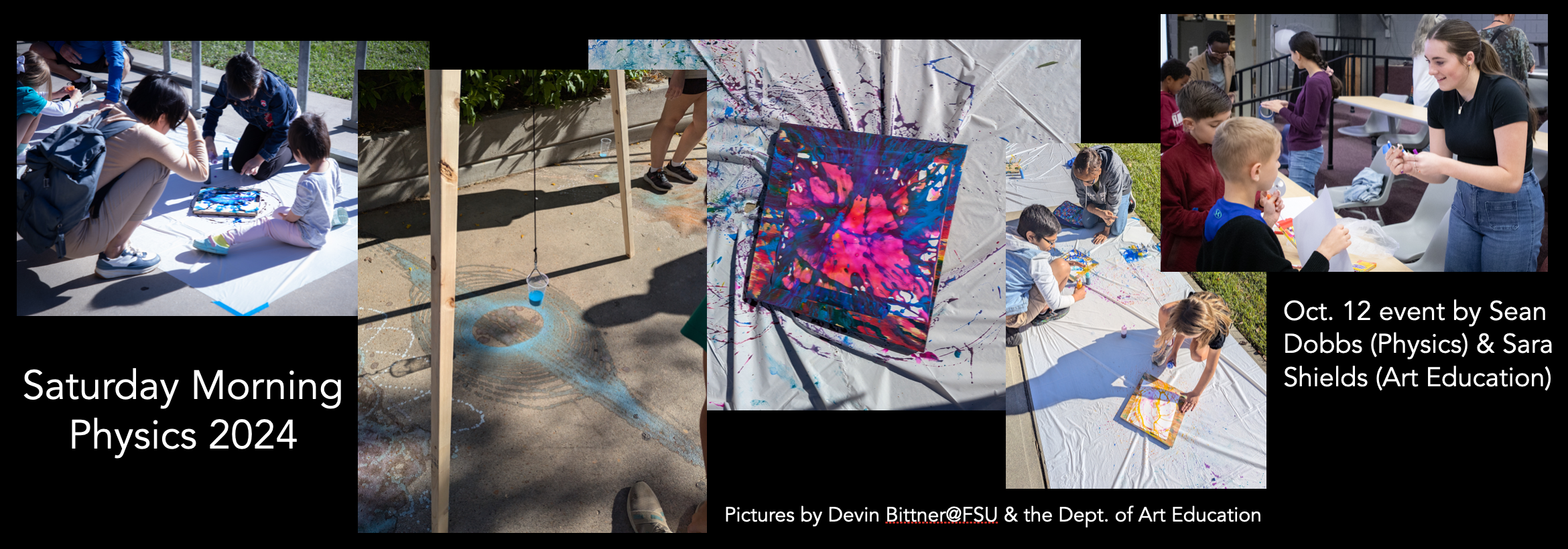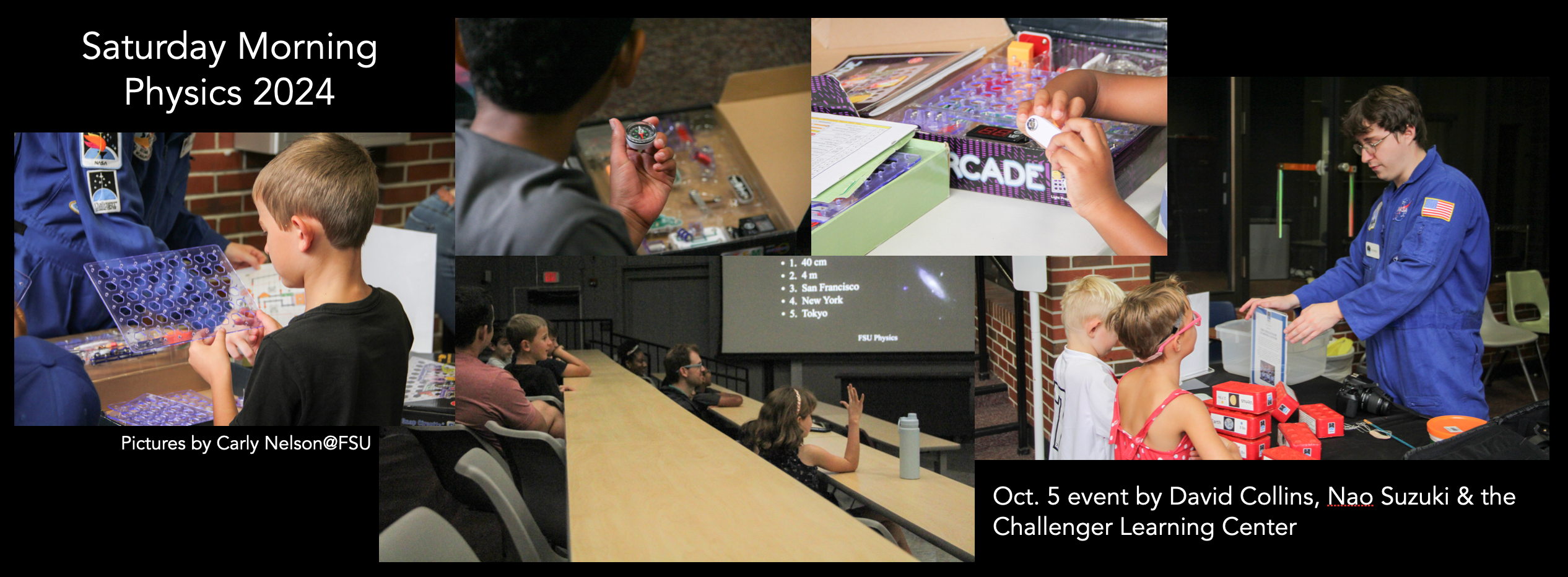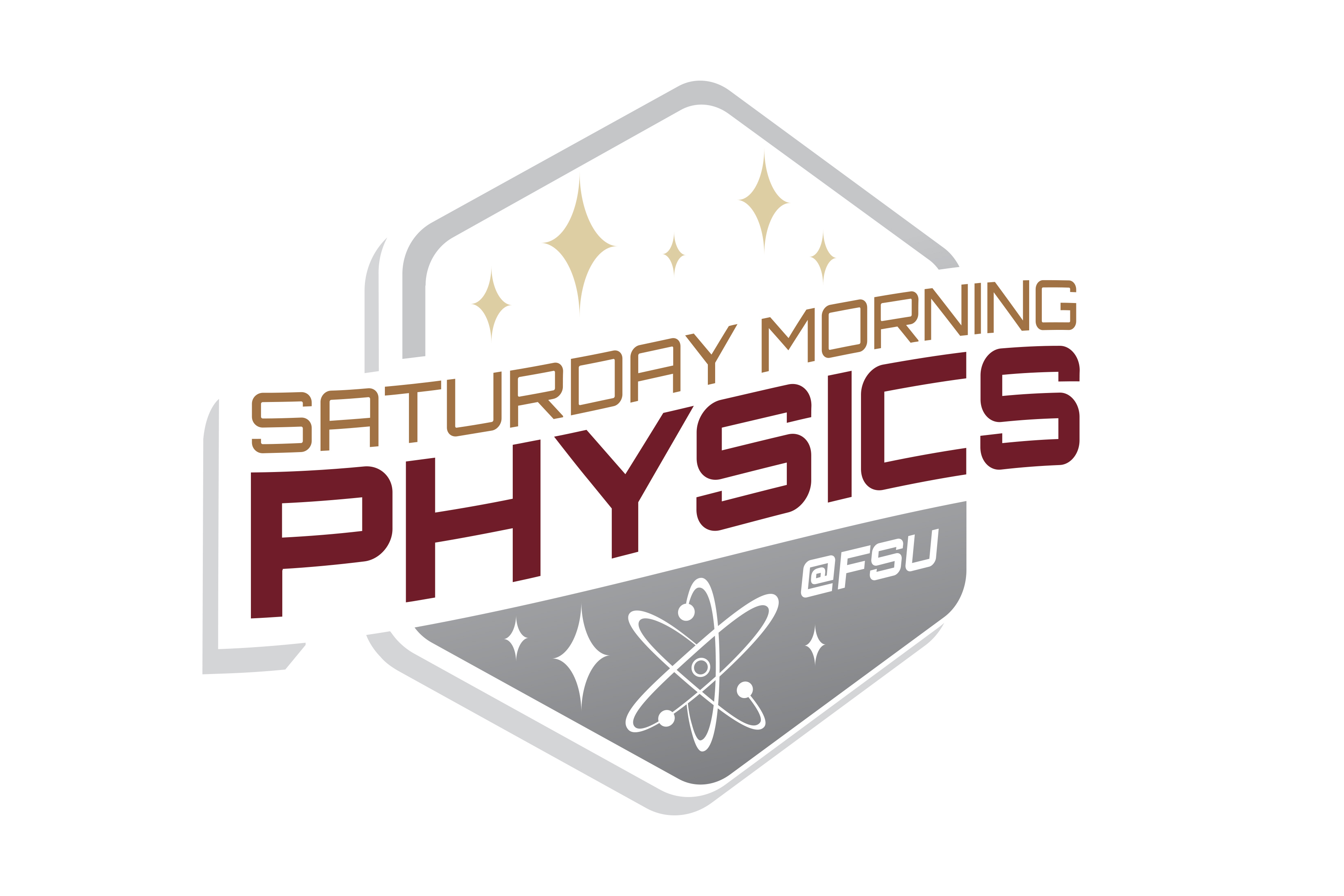
The Saturday Morning Physics program introduces children and community members to current topics in the physical sciences, presented by scientists active in research. We seek to educate, entertain and inspire. We offer this program as a community service free to the participants; it is completely funded by Florida State University. Over the years, thousands of students of all ages have enjoyed this program, learning and benefiting from the opportunity to interact directly with working scientists.
New format! This year all presentations will begin at 9:30 a.m. and last approximately 1 hour. Most events will include hands-on activities. Refreshments will be provided. Check out the pictures below!
Events will be held in room 101 of the Richards Building (UPL) on the campus of Florida State University (exact location). The one exception is the event on Oct. 4, 2025 titled "Exploring the World of Quantum Materials and Optics," which will be held at the National High Magnetic Field Laboratory, a.k.a., the MagLab. Parking is available near both locations. Note that hard-toe shoes are required for the MagLab lab tour – no sandals!
On days with a home football game, the allowed parking areas can be found as the gold regions of this map. Parking is available in several regions near the Richards (UPL) building, and along Academic Way. Other nearby parking lots include the McCollum, Rogers Hall, and Hull Drive East parking lots. The football game schedule can be found here – please note that the timing of the games can change, so please confirm the schedule the day before.
Fall 2025 Schedule
|
|
|
|
| Sep. 27, 2025 |
Nuclear Cauldron, Look What's Cooking! The event includes a visit of the Nuclear Lab. Closed-toe shoes required! |
Vandana Tripathi & Kevin Fossez |
| Oct. 4, 2025 |
Exploring the World of Quantum Materials and Optics The event includes a visit of the MagLab. Closed-toe shoes required! |
Kaya Wei & Guangxin Ni |
| Oct. 11, 2025 |
Unlocking the Secrets of the Universe: A Fun Adventure into Classical Physics! |
The Society of Physics Students |
| Oct. 18, 2025 |
Smashing Atoms to Size Up the Universe |
Daniel Pershey & Kohsaku Tobioka |
| Oct. 25, 2025 |
Blast Off! The event is part of the FSU Discovery Days series |
Sean Dobbs (Physics) & Sara Shields (Art Education) |
| Nov. 1, 2025 |
Quantum Adventures |
Yanzhu Chen, Cyprian Lewandowski, Nick Bonesteel & Peng Xiong |
| Nov. 15, 2025 |
Tour of the Universe |
David Collins & Nao Suzuki, with the participation of the Challenger Learning Center |
Want more information?
Professor Kevin Fossez
Saturday Morning Physics Committee Chair
Physics Department
Florida State University, Tallahassee, FL 32306-4350
E-mail: kfossez@fsu.edu
Pictures:
